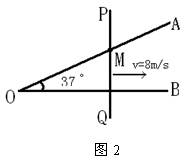问题
单项选择题
货币的本质是()
A.一般等价物
B.商品交换的媒介
C.商品
D.价值符号
答案
参考答案:A
解析:
货币的本质是一般等价物,能与一切商品进行交换。从根本上说,货币的神奇之处在于本质是一般等价物。故本题选A项。它比商品出现的晚,似乎是一对孪生兄弟。货币充当商品交换的媒介使它的职能。纸币是价值符号。BCD项不符合题意故排除。
考点:本题考查货币的本质知识点。
点评:本题是学生调动和运用基础知识解决问题,难度较小。目的是让学生通过书本知识来反思所学的内容,以此来加深知识的掌握程度。只要掌握好基础知识就可做好本题。

